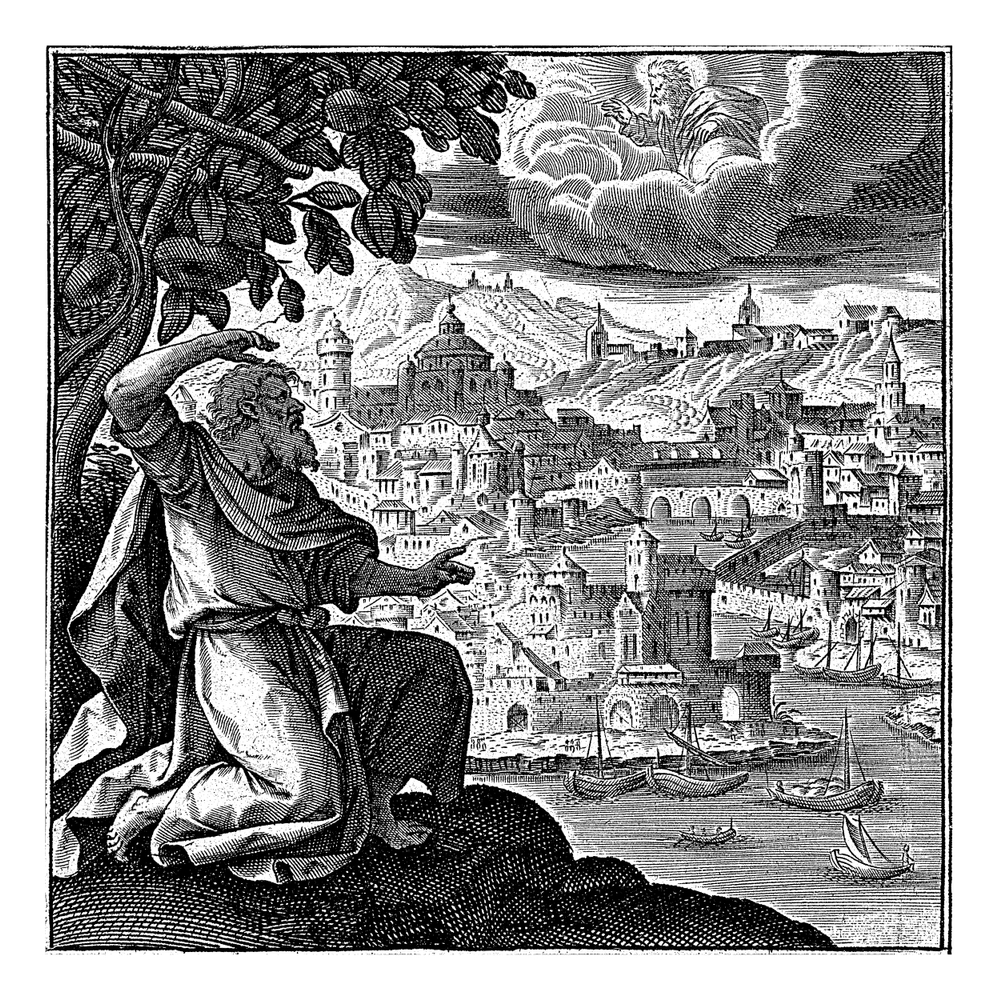
So Jonah went out of the city, and sat on the east side of the city, and there made him a booth, and sat under it in the shadow, till he might see what would become of the city. (Jonah 4:5)
Jonah was displeased and angry that the Lord forgave the Ninevites and spared them. His attitude prompted the Lord to ask him if it was appropriate for him to be angry (see verse 4). After hearing God’s question, Jonah left the city of Nineveh and made himself a booth to sit in and see whether God would keep His word.
And the LORD God prepared a gourd, and made it to come up over Jonah, that it might be a shadow over his head, to deliver him from his grief. So Jonah was exceeding glad of the gourd. (4:6)
God had multiple reasons for causing this gourd to grow over Jonah:
First, God wanted to provide some physical comfort for Jonah. The plant served as a shade for Jonah, providing relief from the hot sun as he sat there. Even in this, we see God’s kindness and tenderness towards Jonah despite his bad attitude.
This is not the first time that we’ve seen God provide physical comfort to one of His prophets when he was in despair. The Lord did this also for Elijah when he was suffering from fear, depression, and thoughts of death (see 1 Kings 19). God, in His wisdom, knew that providing physical comfort can be an important preface to dealing with spiritual issues.
Jesus did this also for His disciples, specifically with Peter, when He met them on the shore after they’d gone back to fishing after Christ’s death. Jesus first provided them with bread and fish to comfort their bodies, then He dealt with spiritual problems, again, specifically Peter’s (see John 21:1-19).
The second reason God caused this gourd to grow was to use it as an object lesson for Jonah—this would be to tackle Jonah’s spiritual state. God would use this gourd to teach Jonah an important lesson and to help him get over his bad attitude.
We see that he was extremely happy about the gourd growing over him. However, his happiness would be short-lived.
But God prepared a worm when the morning rose the next day, and it smote the gourd that it withered. (4:7)
Once again, we see God used a creature to get Jonah’s attention. God prepared the gourd, but then God prepared the worm. He caused the worm to smite the gourd (likely, eat it from the inside) so that it withered and died. Now God had begun the process of making Jonah uncomfortable in his situation. Jonah needed to be stirred up a little. How would he react?
And it came to pass, when the sun did arise, that God prepared a vehement east wind; and the sun beat upon the head of Jonah, that he fainted, and wished in himself to die, and said, It is better for me to die than to live. (4:8)
Again, we see the phrase “God prepared.” This time, it was a vehement wind. In this verse, vehement means “violent; acting with great force; furious.” This is a wind powerful enough to do some serious damage. As if that weren’t bad enough, God also allowed the sun to beat down on Jonah’s head, causing Jonah to feel faint. Likely, it caused some form of sunstroke.
These torturous elements stirred up Jonah’s feelings of depression and defeat. Jonah simply wanted to die; he believed that his life was at such a terribly low state that it would be better to die than to live. How sad it is to see a man of God reduced to such a state by his own choices.
Jonah reacts in such a human way. Are we not all subject to the same temptations? Do we not also react in the wrong ways at times? Jonah knew that God is true, but he had difficulty trusting that God knew best. Haven’t we all fallen prey to that same way of thinking?
However, God continued to work with Jonah, just as He continues to work with all of us. God chastened Jonah because He loved Jonah; God does the same for all of those He loves (Hebrews 12:5-6).
And God said to Jonah, Doest thou well to be angry for the gourd? And he said, I do well to be angry, even unto death. (4:9)
It is worth noting here that God was still speaking to Jonah and that Jonah was still responding. How can anyone come down that harshly on Jonah when he was still in open communication with the Lord? Now, Jonah did not respond in the right way, but at least he didn’t just ignore God’s urges.
However, it is sad that Jonah was more upset over the loss of a silly little plant than he was over the thought of thousands of people perishing under the wrath of God. Now God confronted Jonah about this very thing:
Then said the LORD, Thou hast had pity on the gourd, for the which thou hast not laboured, neither madest it grow; which came up in a night, and perished in a night: And should not I spare Nineveh, that great city, wherein are more than sixscore thousand persons that cannot discern between their right hand and their left hand; and also much cattle? (4:10-11)
God called Jonah’s priorities into question. The Lord reminded Jonah that he didn’t make the gourd, God did. If Jonah could show such pity on something he had done nothing to bring about, how could he be surprised that God would show pity on more than 120,000 people that He had made?
Due to the abrupt ending of the book, it is no stretch to say that it seems Jonah understood God’s point. How can we make that assumption? The sheer fact that we have this book, written by Jonah under the inspiration of God, shows that Jonah didn’t just abandon his calling and service to the Lord.
We learn also from 2 Kings 14:25 that God used Jonah to speak to King Jeroboam of Israel as well. The event that this book mentions took place after the events of the book of Jonah. God still spoke to Jonah and through Jonah after he left Nineveh. Even though it wasn’t directly recorded for us, Jonah learned his lesson and went on to serve the Lord with his life. May we do the same.
